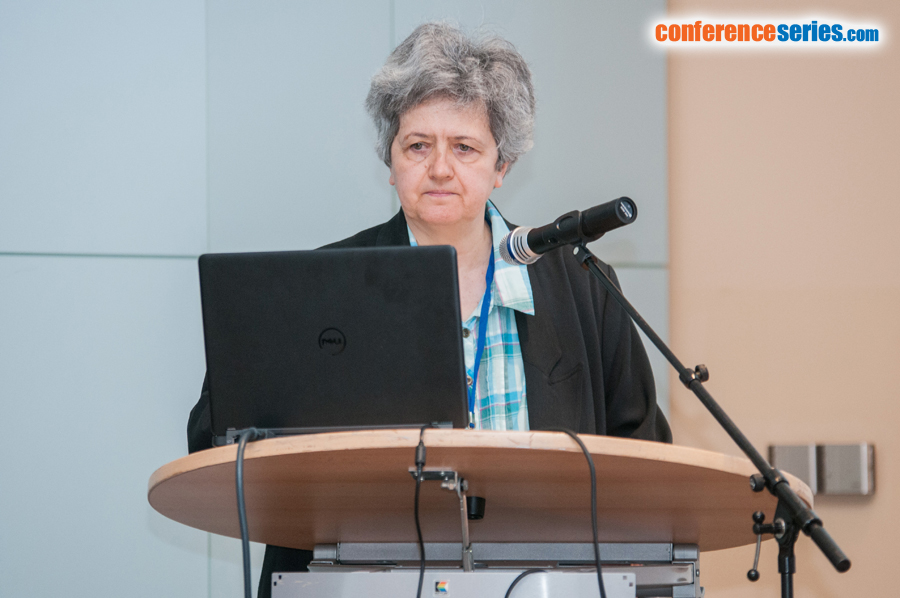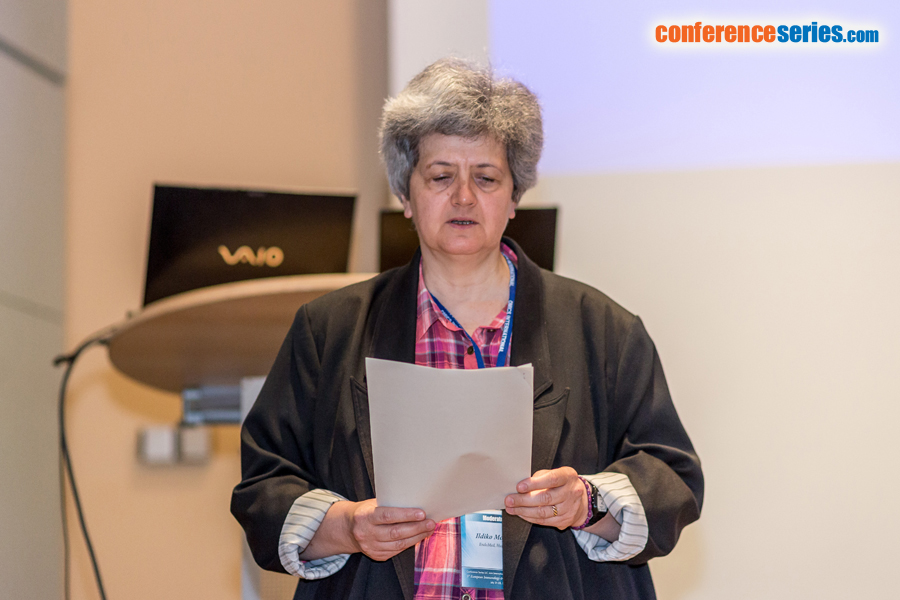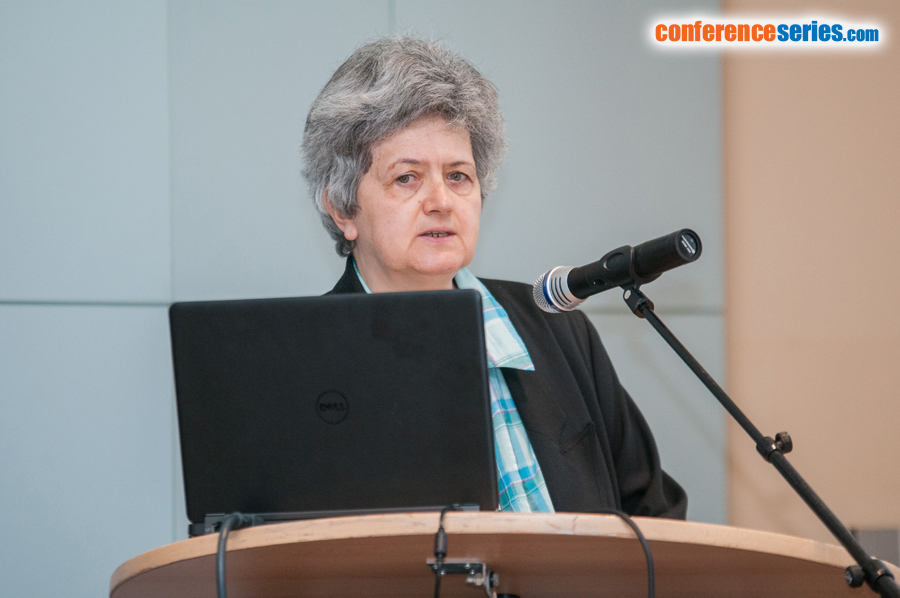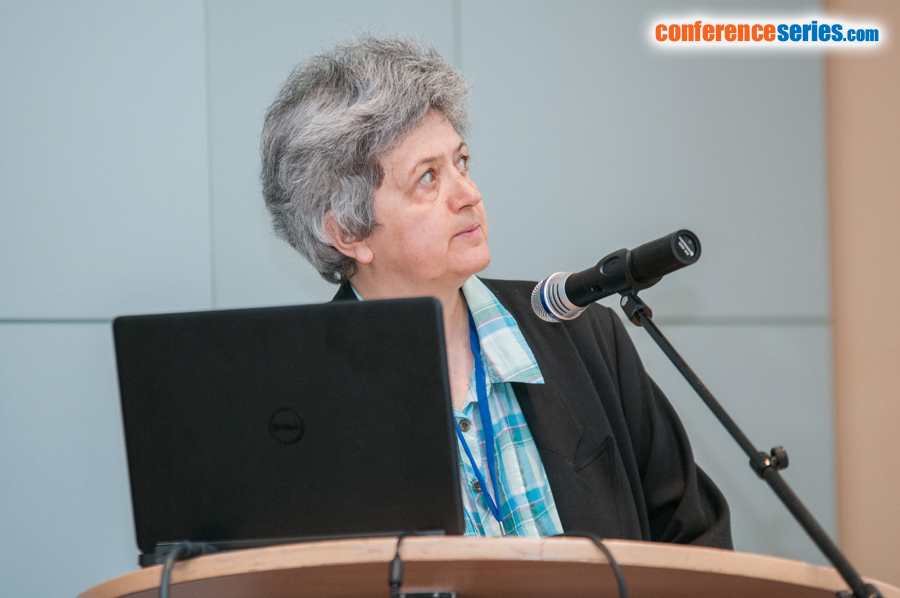Ildiko Molnar
EndoMed, Hungary
Title: The role of tissue-specific type II 5’-deiodinase enzyme activities in Graves’ orbitopathy and systemic sclerosis: A new candidate in thyroid autoimmunity
Biography
Biography: Ildiko Molnar
Abstract
Type II 5’-deiodinase enzyme (DII) activity is responsible for T4 conversion to T3 resulting in the majority of intracellular T3 concentration. DII is a membrane-anchored protein characterized by tissue-specificity; highly expressed in thyroid, pituitary, skeletal, eye and cardiac muscles, brain, adipose tissue and bone. Decreased DII activity leads to hypothyroidism in euthyroid sick syndrome. We demonstrated DII expression in thyroid, eye and skeletal muscle tissues by immunohistochemistry using immunized guinea pig and patients sera with Graves’ orbitopathy. Decreased DII activities were measured after adding proinflammatory cytokines and patients sera with hyperthyroid Graves’ orbitopathy and systemic sclerosis. Antibodies to DII inhibited the mitogen-activated protein kinase (MAPK) activation in thyroid tissue. Proinflammatory cytokines (IL-6, TNFα, IFNγ) inhibited thyroid DII activities in dose-dependent manner (Vmax: 4.1×10-3 pmol/mg/min for IL-6; 0.18 pmol/mg/min for TNFα; 0.23 pmol/mg/min for IFNγ). Hyperthyroid patient sera with Graves’ orbitopathy decreased better thyroid DII activities than eye muscle DII ones (3.99±5.79 vs. 7.66±10.49 pmol/mg/min, P<0.05, n=26). Patient sera with systemic sclerosis (SSc, n=19) decreased DII activities compared to those in controls (n=16) (4.99±1.04 vs. 2.88±0.61 pmol/mg/min, P<0.0001). Immunized guinea pig and Graves’ patient sera with anti-DII antibodies resulted in relevant inhibition of MAPK activation. In conclusion, DII protein can be a new autoantigen in thyroid autoimmunity, particularly in Graves’ orbitopathy. DII activity blocking cytokines could be responsible for low FT3 levels causing euthyroid sick syndrome in systemic sclerosis. The difference in tissue-specific DII activities could be implicated in the development of orbitopathy in hyperthyroid Graves’ disease.





